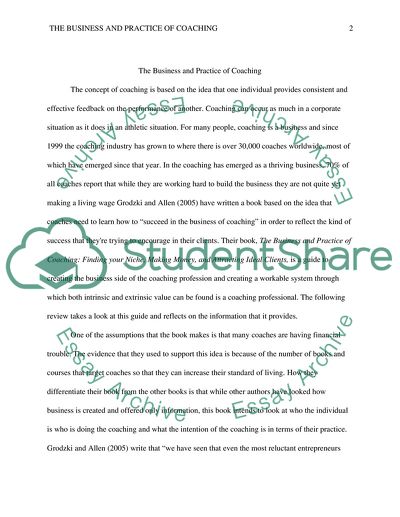Cite this document
(“The Business and Practice of Coaching Book Report/Review”, n.d.)
The Business and Practice of Coaching Book Report/Review. Retrieved from https://studentshare.org/psychology/1831742-the-business-and-practice-of-coaching
The Business and Practice of Coaching Book Report/Review. Retrieved from https://studentshare.org/psychology/1831742-the-business-and-practice-of-coaching
(The Business and Practice of Coaching Book Report/Review)
The Business and Practice of Coaching Book Report/Review. https://studentshare.org/psychology/1831742-the-business-and-practice-of-coaching.
The Business and Practice of Coaching Book Report/Review. https://studentshare.org/psychology/1831742-the-business-and-practice-of-coaching.
“The Business and Practice of Coaching Book Report/Review”, n.d. https://studentshare.org/psychology/1831742-the-business-and-practice-of-coaching.


